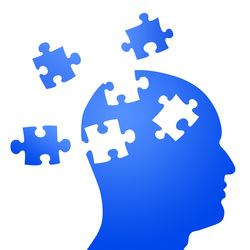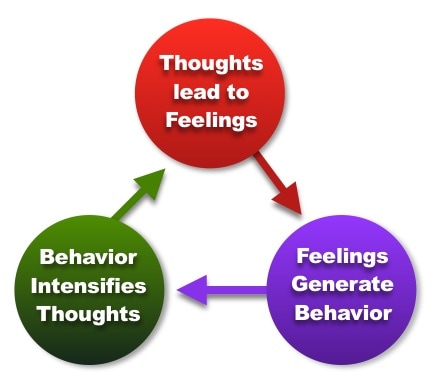|
Cognitive-Behavioral Therapy
Cognitive-behavioral therapy is an effective therapy for anxiety, worry, depression, relationship issues, and general behavior change. This therapy is based on the premise that the way we think about things affects the way we feel and therefore, it is often incorrect assumptions and inaccurate or extreme thinking styles that lead to out-of-proportion emotional reactions and problematic behaviors. For example, a "catastrophizing" thinking style often leads to out-of-control worrying and a "mindreading" cognitive distortion often leads us to make incorrect assumptions in our relationships. Cognitive-behavioral therapy encourages us to examine our thinking and to assess its practical effect on the symptoms we are experiencing. Then, armed with this awareness, we can evaluate our thoughts by examining the evidence for and against them, and choose to replace them if we find that they are not supported by evidence, are causing problems in our lives, or simply would be better replaced with a more adaptive or evidence-based thought. |
|
Important elements of cognitive-behavioral therapy:
1) Self-monitoring of symptoms: Clients collect evidence from their daily lives about how thoughts are affecting physical and emotional states as well as behaviors. 2) Identify your cognitive distortions: Learn about the most common thinking errors and how to recognize them in your thought patterns. 3) Careful evaluation of thoughts: Learn how to weigh the evidence for and against your automatic thoughts so that you can make an informed decision about whether to keep or replace them. 4) Thought replacement: Learn how to replace faulty thinking styles with healthy alternative thoughts that are more adaptive and/or realistic. |

